Research Blog
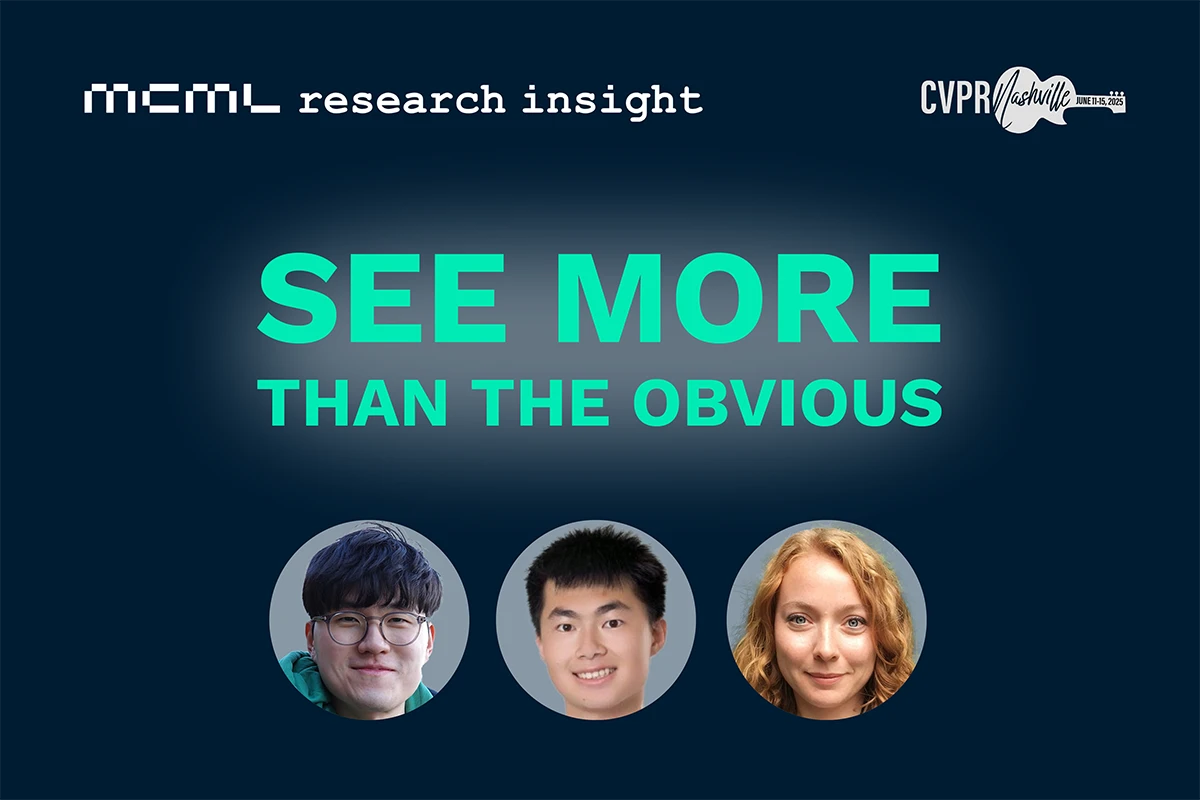
19.02.2026
COSMOS – Teaching Vision-Language Models to Look Beyond the Obvious
MCML Research Insight - With Sanghwan Kim, Rui Xiao, Mariana-Iuliana Georgescu, Stephan Alaniz, and Zeynep Akata
Today’s AI systems are remarkably good at recognizing what stands out most. Yet understanding how details relate to each other remains surprisingly difficult. Imagine asking an AI assistant to …
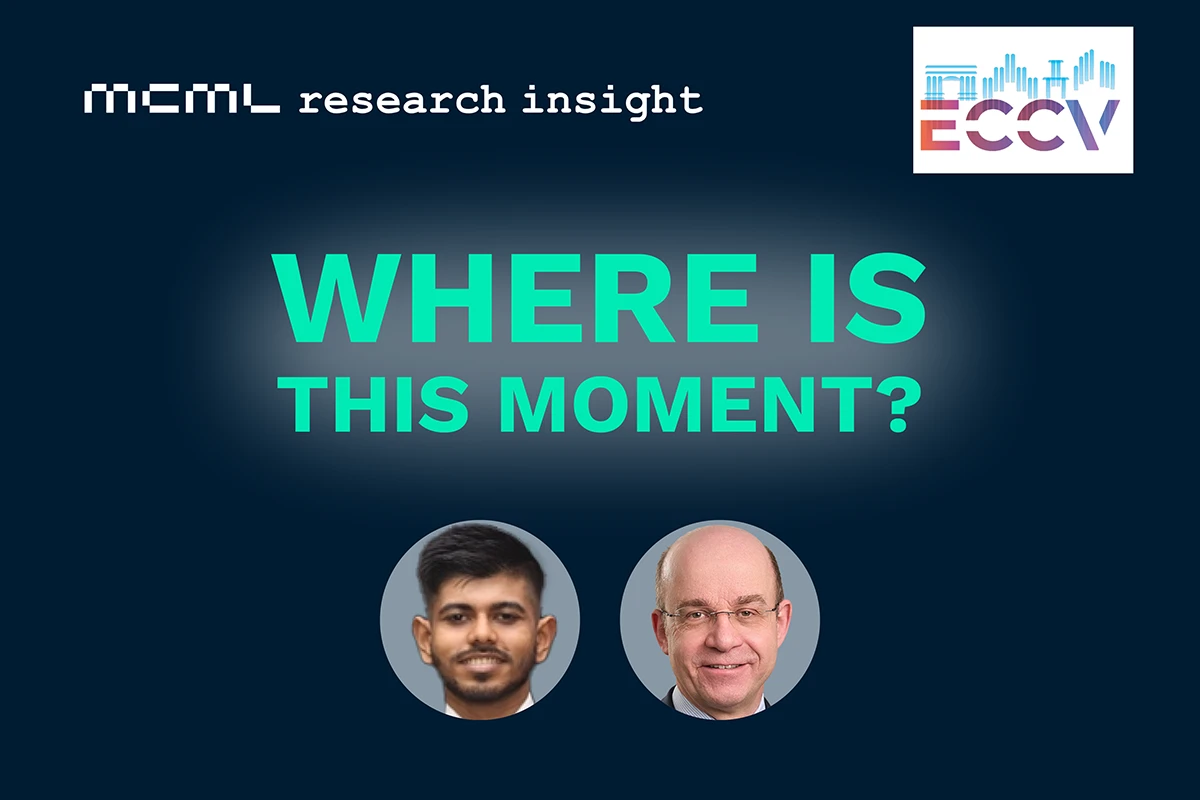
05.02.2026
Needle in a Haystack: Finding Exact Moments in Long Videos
MCML Research Insight - With With Tanveer Hannan and Thomas Seidl
Long videos are everywhere, with footage of movies, YouTube videos, body-cam recordings, and AR/VR often running for tens of minutes or even hours. Now imagine asking a simple question like “Where are …
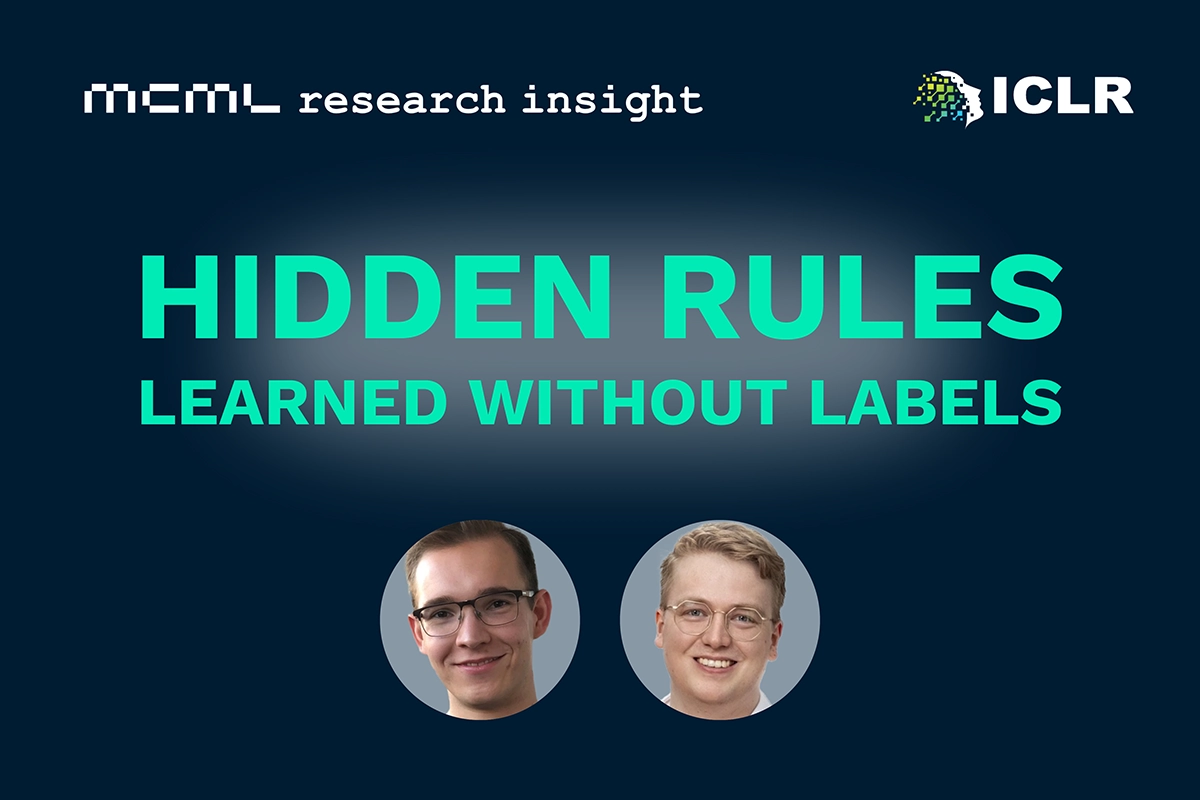
29.01.2026
How Machines Can Discover Hidden Rules Without Supervision
MCML Research Insight - With Tobias Schmidt, and Steffen Schneider
How can machines learn the hidden rules that govern how systems change—how objects move, how weather patterns unfold, or how biological signals evolve—without ever being told what those rules are?
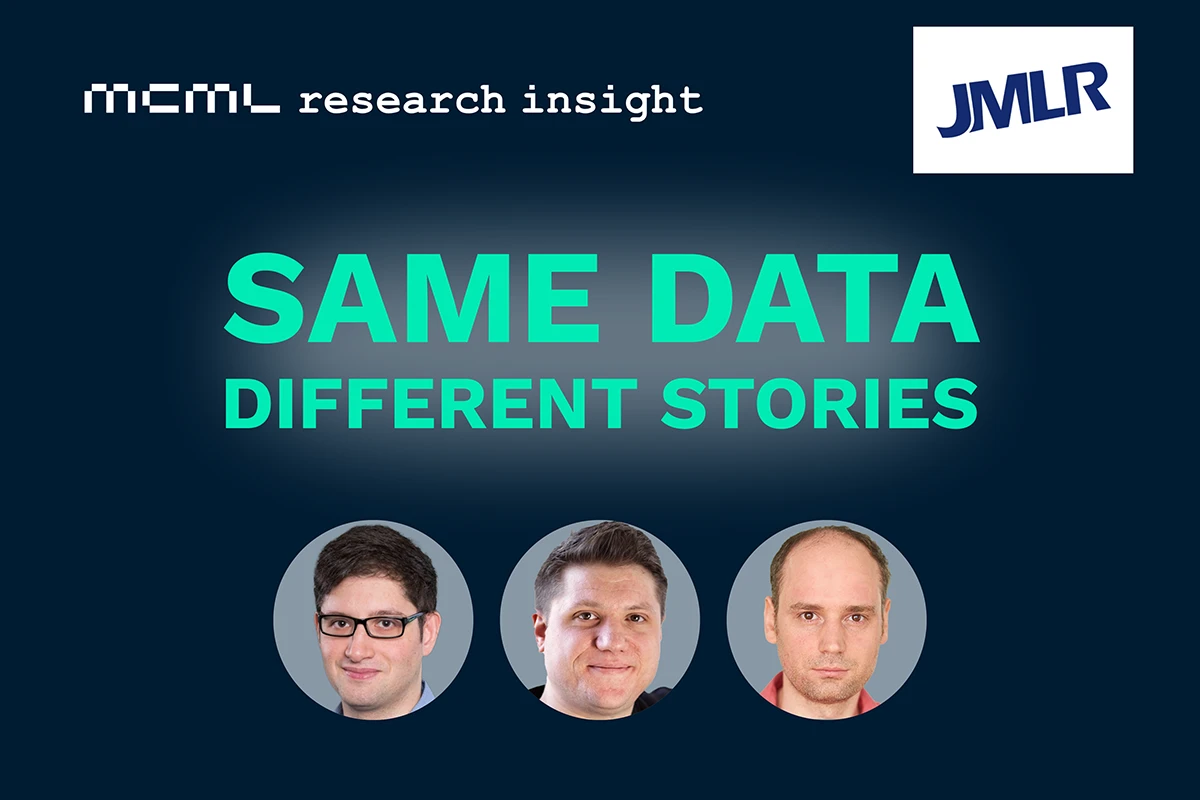
22.01.2026
From Global to Regional Explanations: Understanding Models More Locally
MCML Research Insight - With Giuseppe Casalicchio, Thomas Nagler, and Bernd Bischl
Machine learning models can be powerful, but understanding why they behave the way they do is often much harder. Early global interpretability tools were designed to show how each feature affects the …
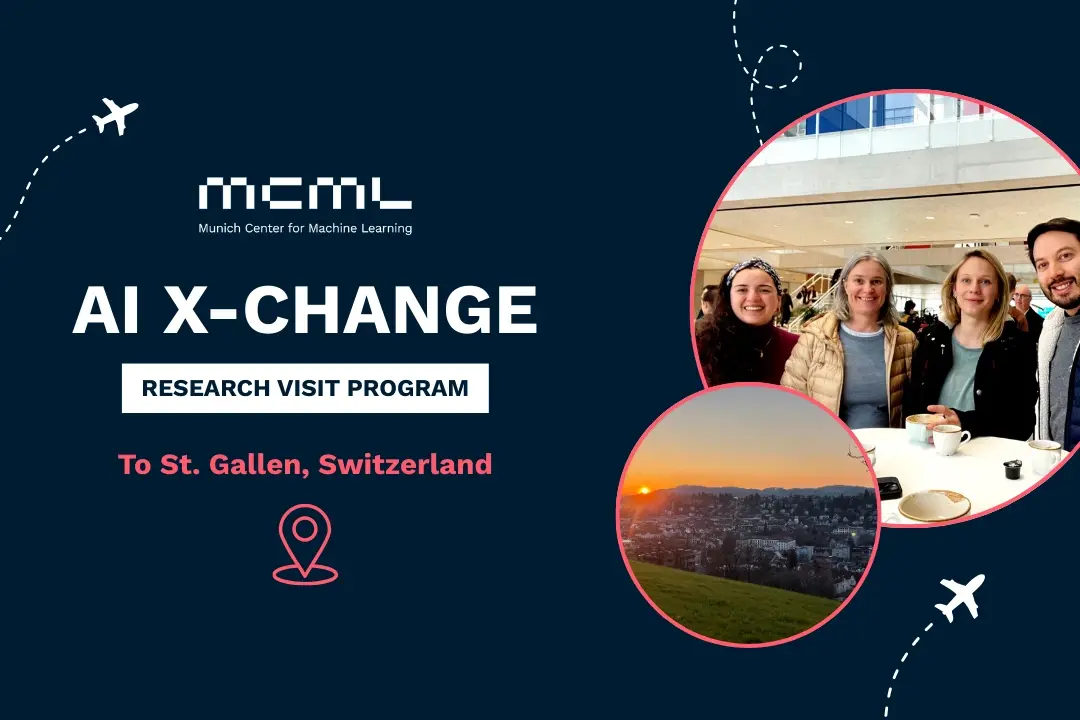
22.01.2026
Research Stay at University of St. Gallen
Andrea Maldonado – Funded by the MCML AI X-Change Program
Between Freudenberg – “happiness mountain” – and Rosenberg – “roses mountain”, I had the pleasure to visit the Institute of Computer Science (ICS-HSG) at the University of St. Gallen (HSG) in …
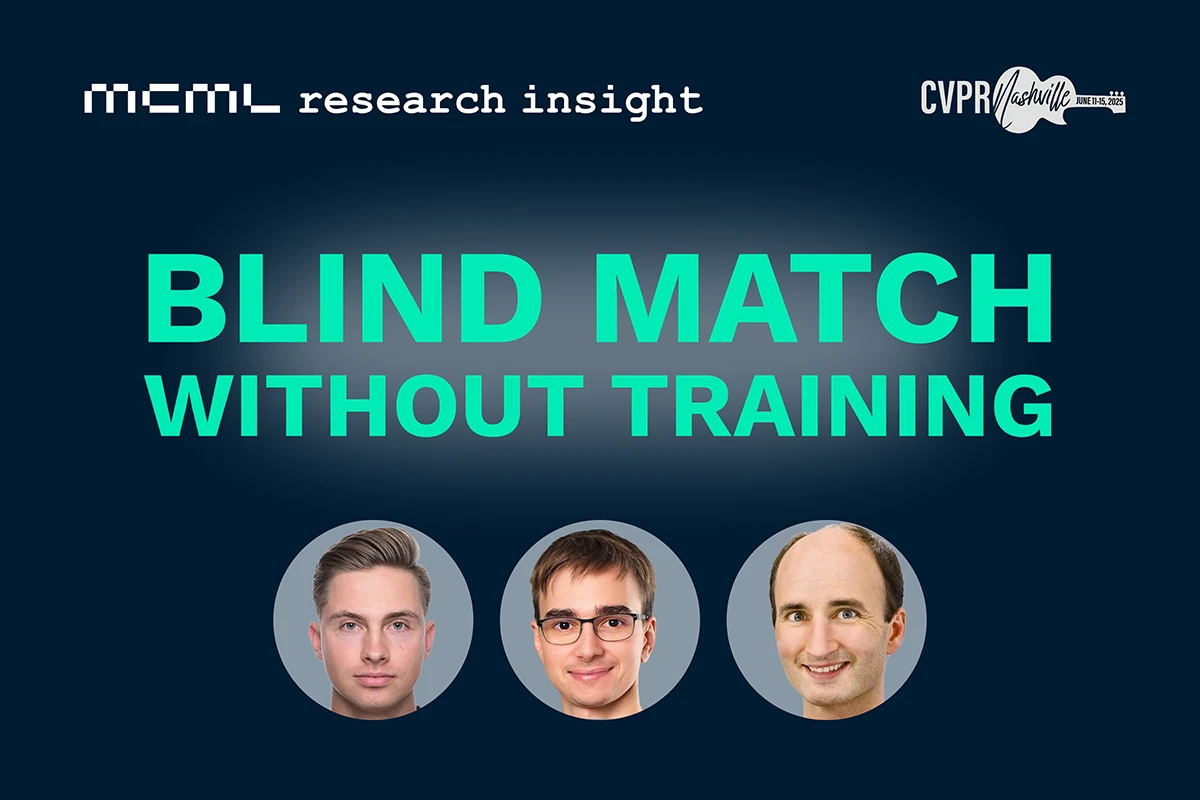
15.01.2026
Blind Matching – Aligning Images and Text Without Training or Labels
MCML Research Insight - With Dominik Schnaus, Nikita Araslanov, and Daniel Cremers
Vision-language models have shown that images and text can live in a shared space: a picture of a “cat” often lands close to the word “cat” in the embedding space. But such …
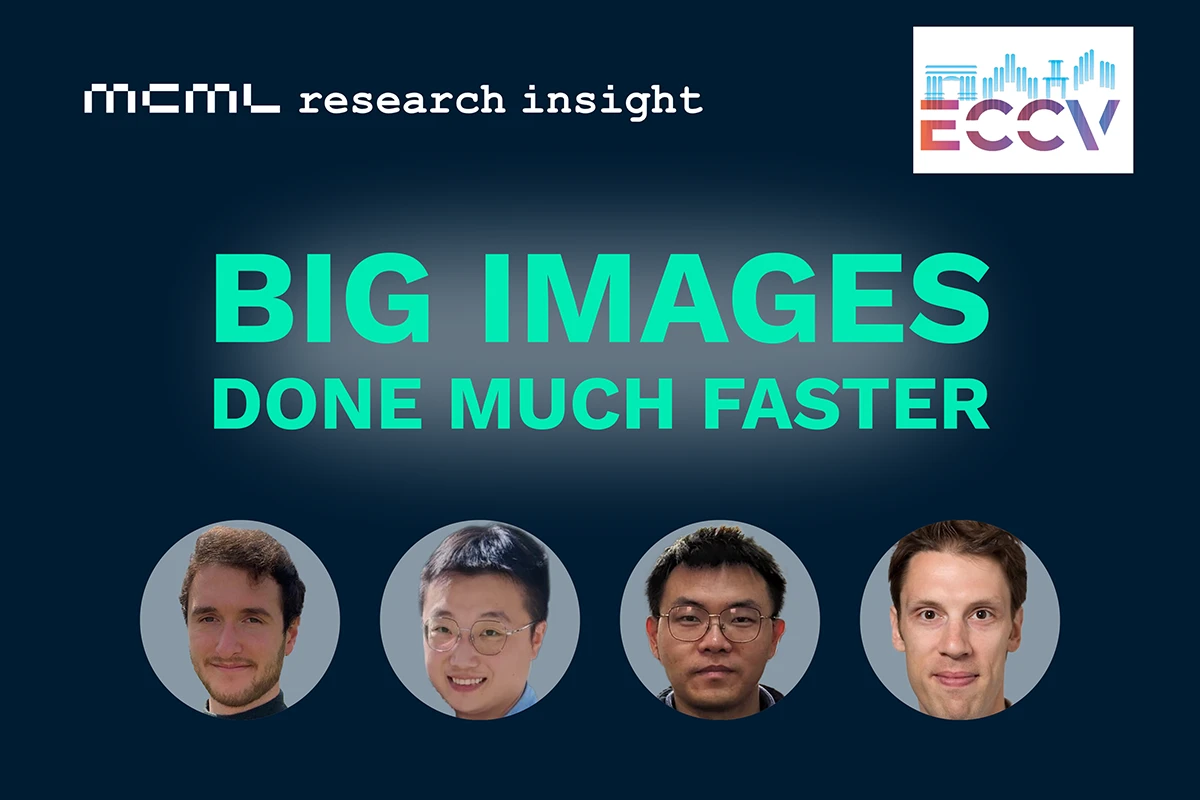
08.01.2026
High-Res Images, Less Wait: A Simple Flow for Image Generation
MCML Research Insight - With Johannes Schusterbauer, Pingchuan Ma, Vincent Tao Hu, and Björn Ommer
Image generation models today can create almost anything, like a futuristic city glowing at sunset, a classical painting of your cat, or a realistic spaceship made of glass. But when you ask them to …
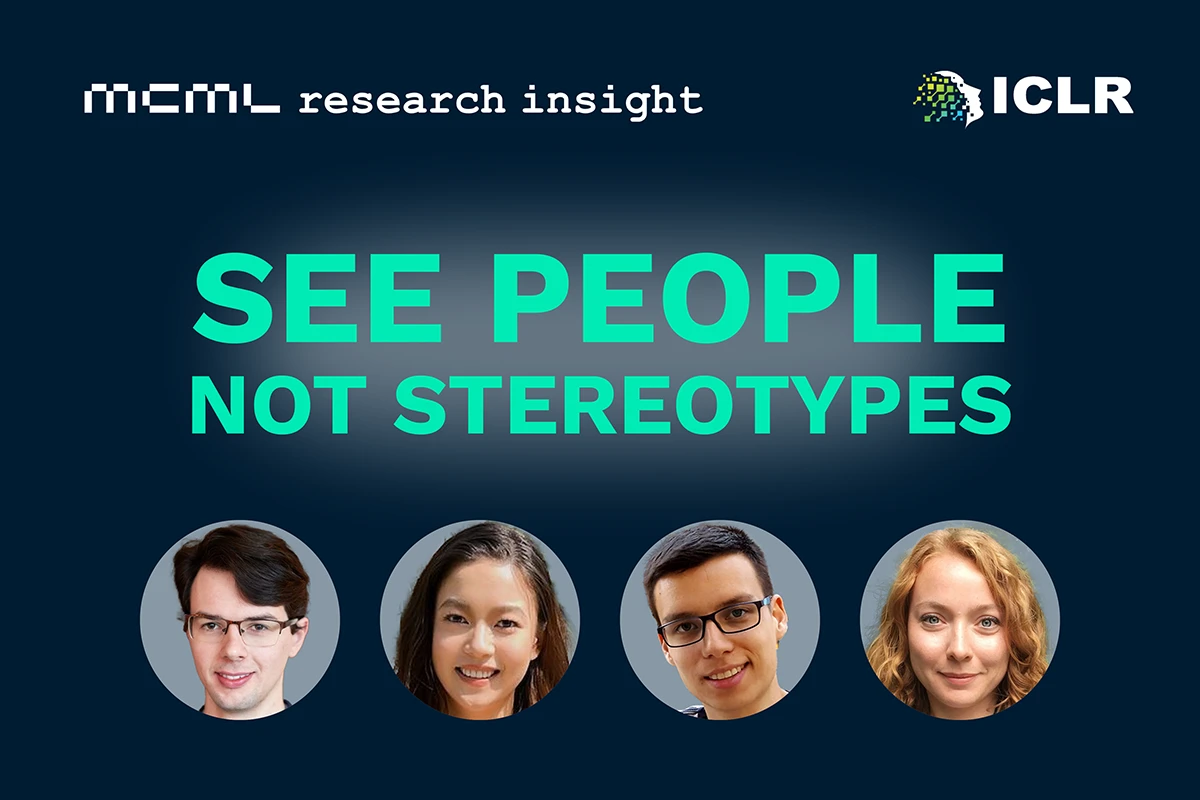
18.12.2025
"See, Don’t Assume": Revealing and Reducing Gender Bias in AI
MCML Research Insight - With Leander Girrbach, Yiran Huang, Stephan Alaniz and Zeynep Akata
Using AI and LLMs at work feels almost unavoidable today: they make things easier, but they can also go wrong in important ways. One of the trickiest problems? Gender bias. For example, if you ask …
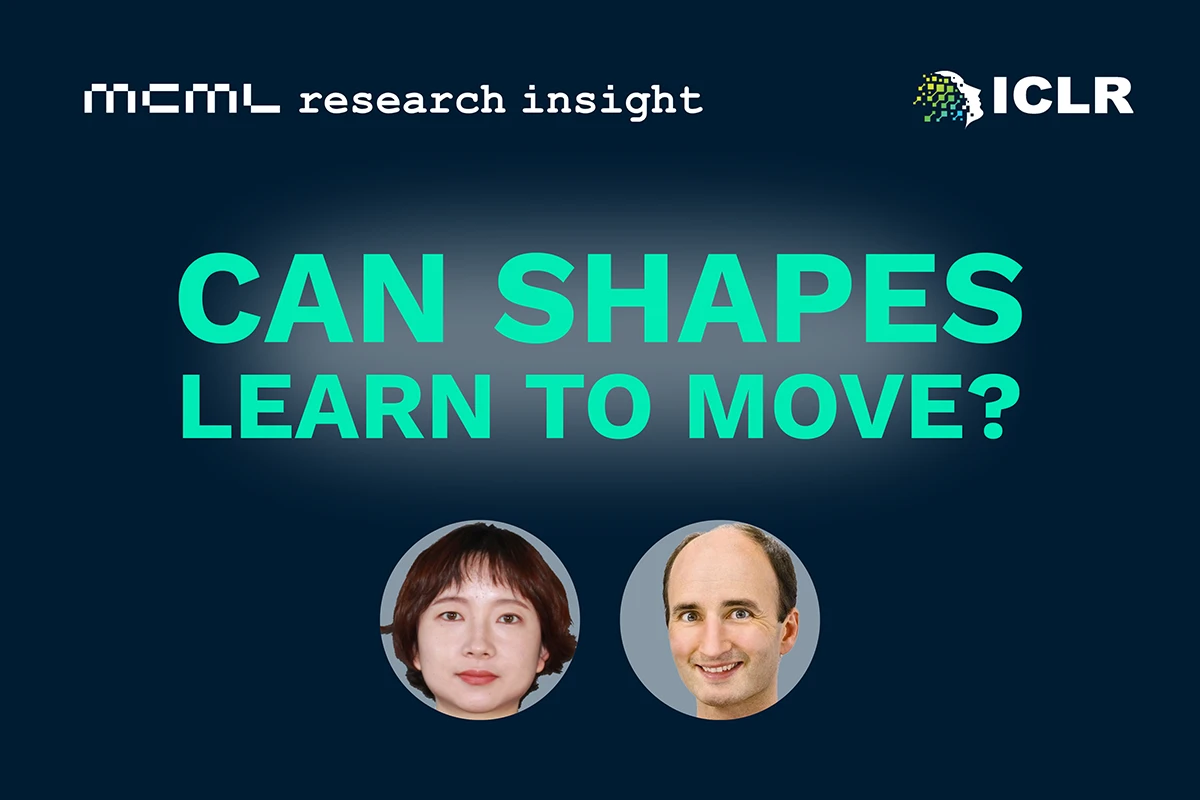
11.12.2025
From Sitting Dog to Standing: A New Way to Morph 3D Shapes
MCML Research Insight - With Lu Sang and Daniel Cremers
Ever wondered how a 3D shape can smoothly change — like a robot arm bending or a dog rising from sitting to standing — without complex simulations or hand-crafted data? Researchers from MCML and the …
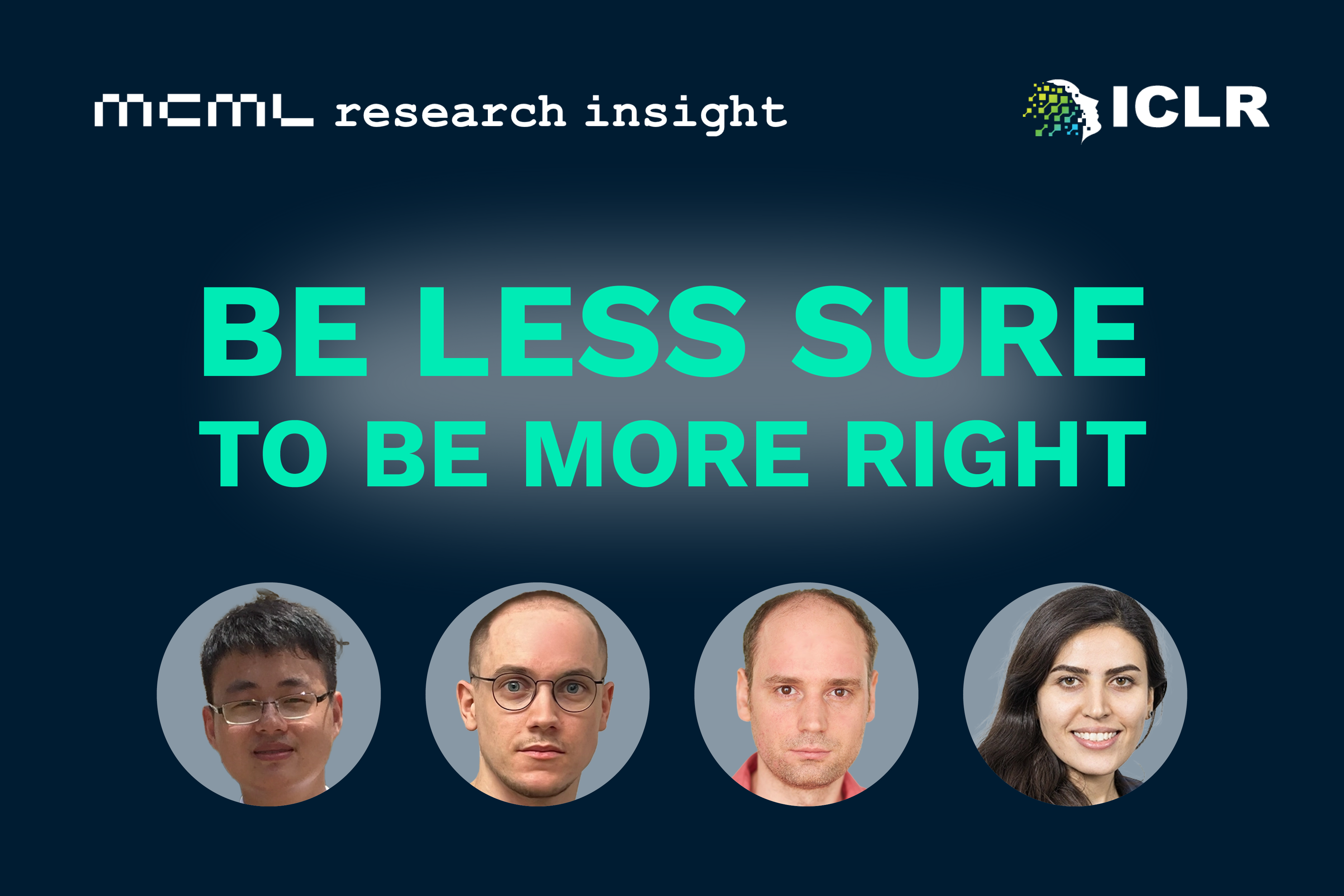
04.12.2025
When to Say "I’m Not Sure": Making Language Models More Self-Aware
MCML Research Insight - With Yawei Li, David Rügamer, Bernd Bischl, and Mina Rezaei
Large language models like ChatGPT or Gemini are now everywhere, from summarizing text to writing code or answering simple questions. But there’s one thing they still struggle with: admitting …
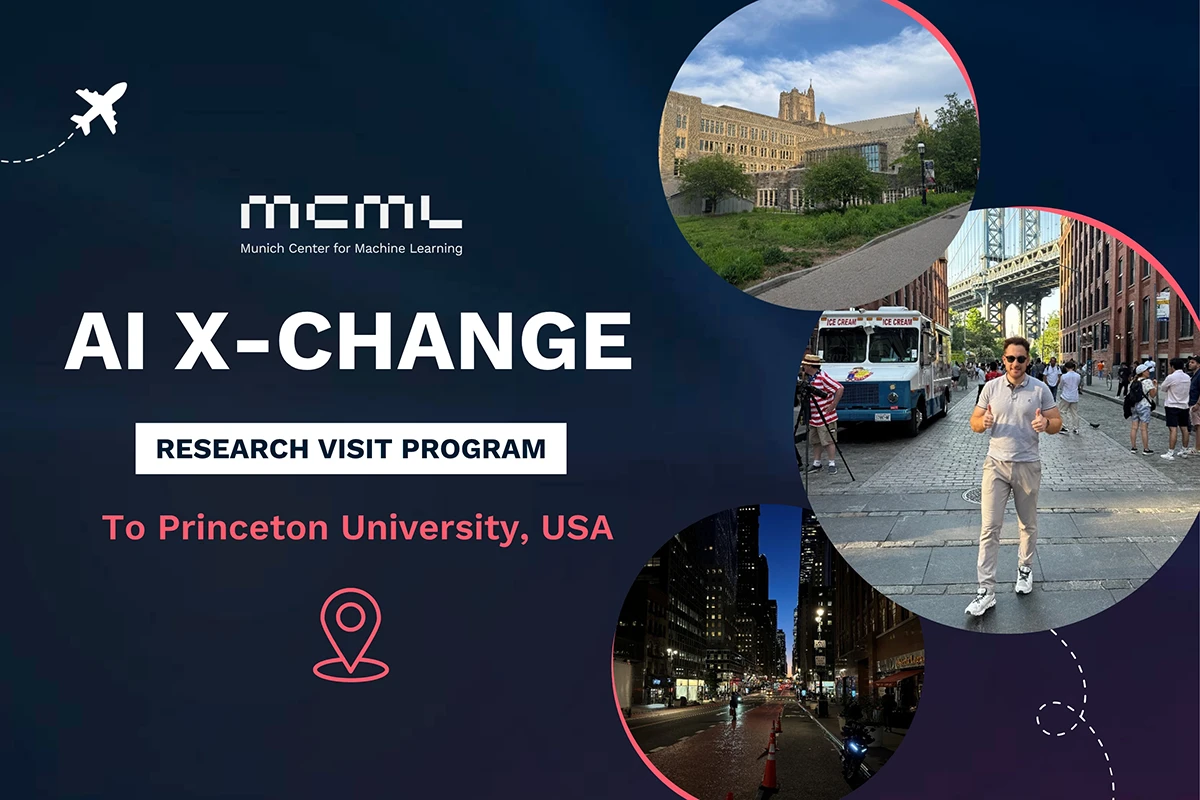
01.12.2025
Research Stay at Princeton University
Abdurahman Maarouf – Funded by the MCML AI X-Change Program
From May to July, I spent three exciting months as a visiting researcher at the Computer Science Department of Princeton University, hosted by Prof. Manoel Horta Ribeiro. The visit grew out of a …
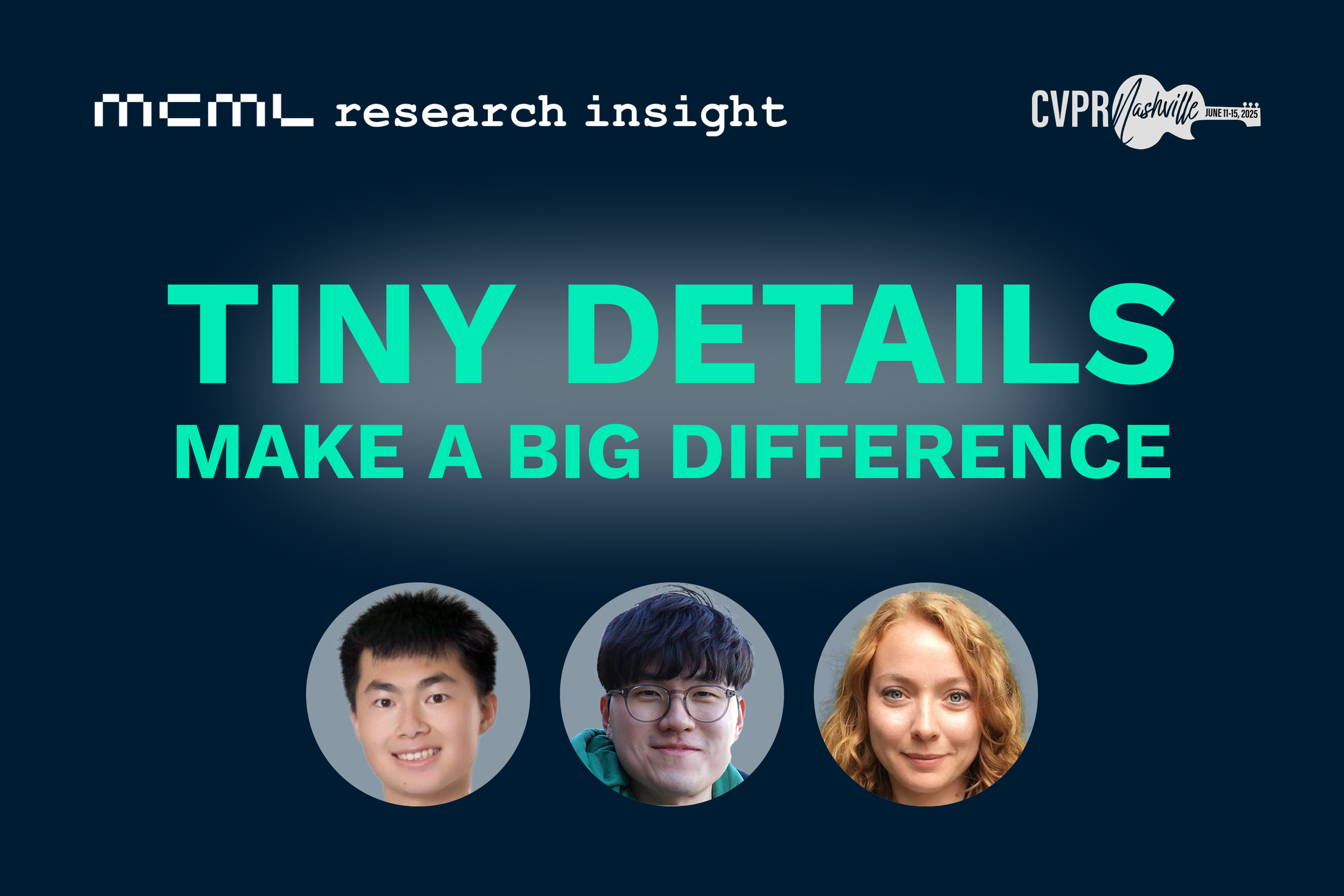
27.11.2025
Seeing the Bigger Picture – One Detail at a Time
MCML Research Insight - With Rui Xiao, Sanghwan Kim, and Zeynep Akata
Large vision-language models (VLMs) like CLIP (Contrastive Language-Image Pre-training) have changed how AI works with mixed inputs of images and text, by learning to connect pictures and words. Given …
2024-11-22 - Last modified: 2026-02-19